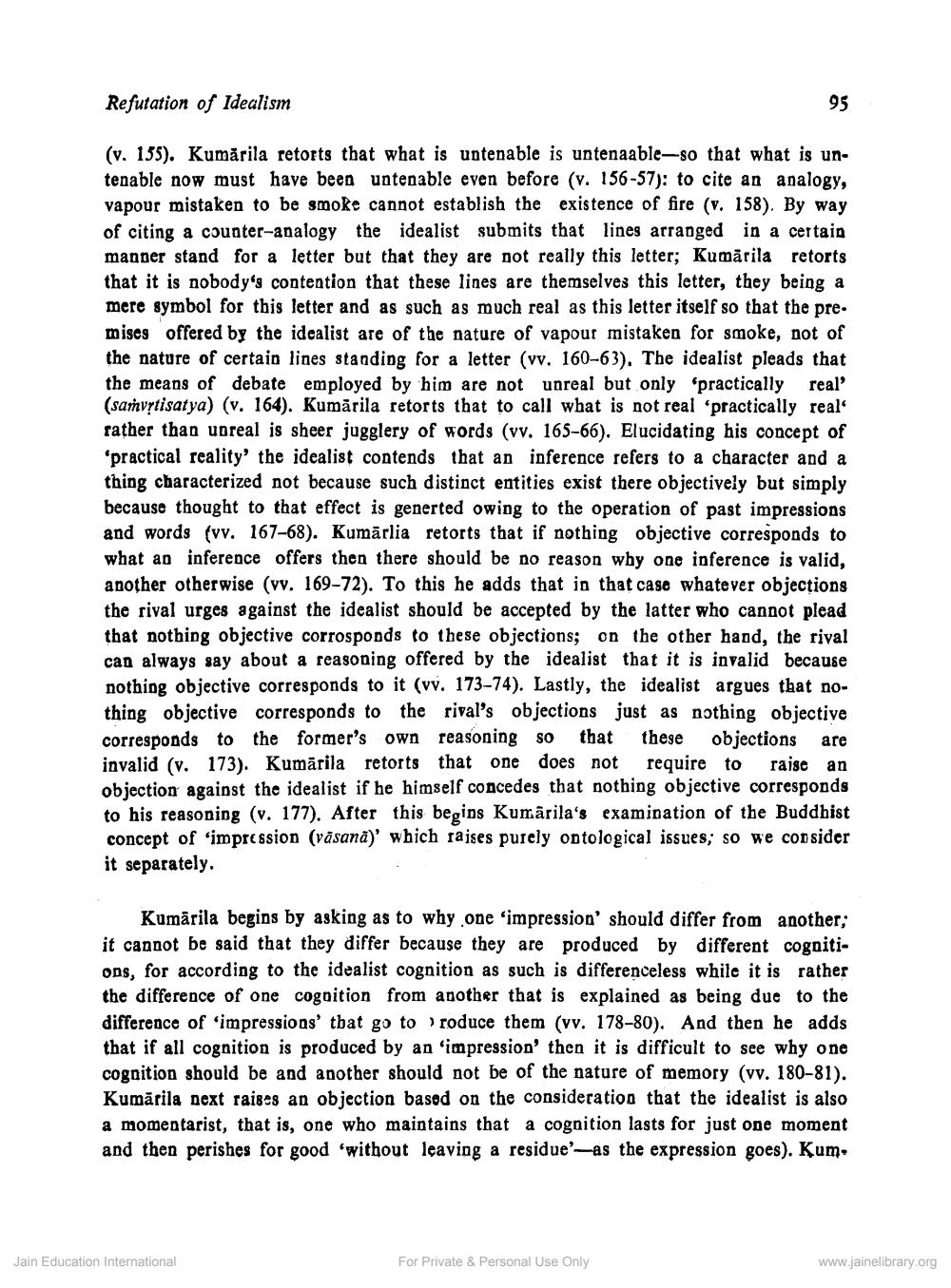________________
Refutation of Idealism
(v. 135). Kumärila retorts that what is untenable is untenaable-so that what is untenable now must have been untenable even before (v. 156-57): to cite an analogy, vapour mistaken to be smoke cannot establish the existence of fire (v. 158). By way of citing a counter-analogy the idealist submits that lines arranged in a certain manner stand for a letter but that they are not really this letter; Kumärila retorts that it is nobody's contention that these lines are themselves this letter, they being a mere symbol for this letter and as such as much real as this letter itself so that the premises offered by the idealist are of the nature of vapour mistaken for smoke, not of the nature of certain lines standing for a letter (vv. 160-63). The idealist pleads that the means of debate employed by him are not unreal but only practically real' (samvytisatya) (v. 164). Kumärila retorts that to call what is not real 'practically real rather than upreal is sheer jugglery of words (vv. 165-66). Elucidating his concept of
practical reality' the idealist contends that an inference refers to a character and a thing characterized not because such distinct entities exist there objectively but simply because thought to that effect is generted owing to the operation of past impressions and words (vv. 167-68). Kumārlia retorts that if nothing objective corresponds to what an inference offers then there should be no reason why one inference is valid, another otherwise (vv. 169-72). To this he adds that in that case whatever objections the rival urges against the idealist should be accepted by the latter who cannot plead that nothing objective corrosponds to these objections; on the other hand, the rival can always say about a reasoning offered by the idealist that it is invalid because nothing objective corresponds to it (vv. 173-74). Lastly, the idealist argues that nothing objective corresponds to the rival's objections just as nothing objective corresponds to the former's own reasoning so that these objections are invalid (v. 173). Kumārila retorts that one does not require to raise an objection against the idealist if he himself concedes that nothing objective corresponds to his reasoning (v. 177). After this begins Kumārila's examination of the Buddhist concept of 'impression (vāsana)' which raises purely ontological issues, so we consider it separately.
Kumärila begins by asking as to why.one 'impression should differ from another, it cannot be said that they differ because they are produced by different cognitions, for according to the idealist cognition as such is differenceless while it is rather the difference of one cognition from another that is explained as being due to the difference of 'impressions' tbat go to roduce them (vv. 178-80). And then he adds that if all cognition is produced by an 'impression' then it is difficult to see why one cognition should be and another should not be of the nature of memory (vv. 180-81). Kumärila next raises an objection based on the consideration that the idealist is also a momentarist, that is, one who maintains that a cognition lasts for just one moment and then perishes for good 'without leaving a residue-as the expression goes). Kum.
Jain Education International
For Private & Personal Use Only
www.jainelibrary.org




